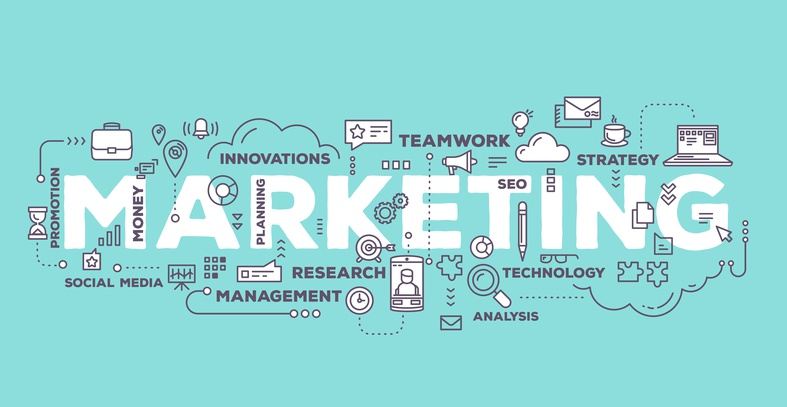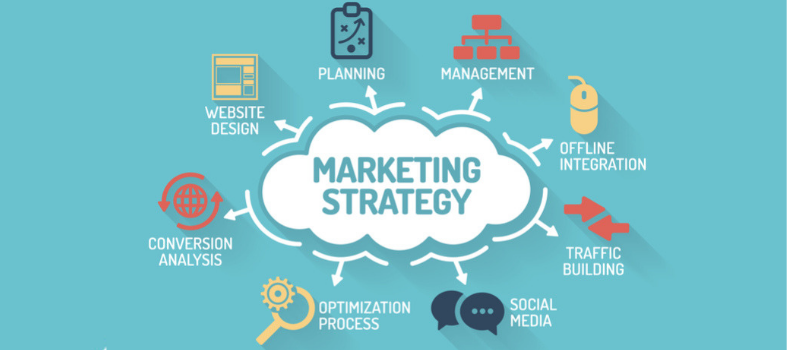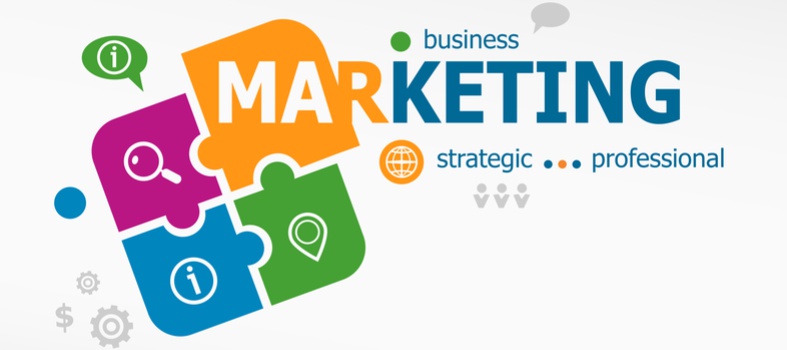Preparing for a Professional Marketing Development Agency consultation
Many businesses put their online presence in the hands of a digital design agency – money well spent for those without an in-house department, or a different perspective for those that have their own team. The best design agencies know how to integrate marketing into all manner of websites and can give tentative advice during an initial consult.
It’s always a good idea to prepare for an initial consult session. This not only gives you a better, more exact view of your company and its goals but will mean your chosen agency can work according to your carefully considered mission without any misunderstanding, right from the word go.
Professional Design Always Includes Professional Marketing
It’s not enough to ask for a professional-looking website. While the appearance of your online presence is, of course, very important, most of us realise design incorporates much more than this. Load times, user experience in terms of ease of navigation, search engine ranking, customer targeting … all of these need to be an integral part of website design and all of these require in-depth knowledge of a range of marketing strategies. These strategies significantly increase users, visitors, signups and sales which themselves increase return on investment (ROI). It therefore goes without saying that a good digital design agency has the proven know-how to add impact to your online marketing strategy and company persona. It is also more cost-effective to use a single agency to tackle both aspects – design and marketing.
Recognising the Sealed Heart of your business
When you decide to improve the online marketing of your company, whether you hand this task to a third party or use your own team, the first obvious step is to recognise the essential core of your business. Nothing has more momentum than the digital world, and today’s excellent strategy may be next month’s failure. By creating a solid, watertight base from which to take subsequent steps, a clearly defined view of your company is made accessible to all who work for it.
Watertight refers to how you protect the true heart of your company. This container does not include marketing strategies but will guide them. When we think of watertight, we imagine a sealed container which has no place for grey areas. Something is either in the box or out of it. Nothing can get in, nothing gets out. Nothing outside of the box can affect it. Only you can make a conscious change to its contents.
In terms of your marketing goals, and in terms of many other goals, your company brand, product and target customer is contained within this watertight box. This may seem rather simplistic, but businesses have often suffered from neglecting this first basic step. Diluting a brand with affiliations and partnerships, adding products that have little to do with the original concept of the brand, or aiming for generic audiences that may or may not be interested in what a business has to offer does little to increase turnover and will cause any marketing strategies to be less effective, websites to be distracting, and branding and products to generate confusion.
Business-sense 101
It is possible to add to your company’s watertight box, but only if any additional or replacement ingredient mixes well with the solution inside; for example, including nutritional supplements in the product range of businesses dealing with fitness accessories. Adding more to this box may itself be the result of a successful marketing strategy that increases brand awareness. Or it may be based upon negative analysis results that show a wider or alternative range of products would increase company success. But any addition (or removal) will be a conscious and well-considered act that has an extremely clear aim.
The watertight box does not contain strategies, mission statements or website design. These are all created from the sealed, fixed information that is contained within. If you are unable to visualise what is in your company’s watertight box, you are unable to implement a successful marketing campaign or construct an appropriate website.
Before an initial consult with a marketing professional you must be able to exactly, and without too many words, describe what your brand is, what it represents, and who it serves. Otherwise known as Business-sense 101.
Company goals
Fine-tuning a marketing strategy can take time. Everyone dreams of viral content that brings in healthy numbers of fresh customers. These success stories are not flukes, but due to high-level insights formed from a confident awareness of what’s in that particular brand’s watertight container.
Once the heart of your business or enterprise has been decided upon and can be easily described to a complete stranger (to your potential marketing and design agency), you then go on to define your company goals. Goals? For the professional digital design and development agency, aren’t these all the same? More turnover. More ROI. Yes, it is. But when it comes to marketing strategies and digital design, knowing short-term goals is often more important than the more generic long-term ones. You, therefore, need to be more specific during a consult session.
By defining your short-term goals, you lay the foundations for one or more immediate online marketing strategies. Short-term goals in a shifting digital environment are also more applicable to business growth. Each short-term goal determines which medium and which channels are the most suitable. Short-term goals, when successful, become part of permanent company strategy and long-term foundations, some of which may even be added to the watertight box at a later date.
Specifying short-term goals from generic long-term goals
Every company with an online presence aims to reach and attract more customers, turn existing customers into repeat buyers and achieve better brand recognition.
Every digital design and marketing professional already knows this. Conversing on such basic goals during a valuable consultation opportunity is, therefore, a waste of time – time that is better used on testing your potential choice of agency with more specific data.
However, how one reaches the long-term goals is worth mentioning at this meeting; these routes must be based upon what the watertight box contains. There is little point in asking a professional strategist to increase customer trust when your product does not fulfill its promise. Or expect a non-targeted marketing campaign to increase signups to any great degree.
Before your meeting, draw up two to three short-term goals (one to three months) based specifically on the information that is sealed within your company’s watertight container. Discuss how your potential developer and marketing strategist might design your website with your target customer in mind and what he or she would do in order to get your existing customers to spread the word, for example, to increase new customer sales by 2% within 3 months. Or how your good product is best represented in order to increase brand awareness in your local area, with a strategy that will attain this in the next six weeks.
This specific information has four benefits. First of all, you are kept constantly aware of your company core and its goals. Secondly, the agency will know your expectations and give an indication of if he or she thinks these can be achieved. Thirdly, the agency will not need to start from square one, even in this early stage. Finally, detailed information leads to more specific ideas – further discussions may lead to channels neither you nor the agency would have considered if less detail had been given – the most efficient use of a single consultation.
Watertight web design
It should now be clear that website design must be based upon your company’s central watertight data. This will also be clear to any skilled and experienced agency representative. A stunning, cleverly-built website with an attractive design is the cornerstone of all online marketing efforts. It is the digital depiction of your company’s centrally fixed data, and it is very tempting to embellish it with unnecessary distractions that dilute a central theme. One might want to add recent technology, or put in something irrelevant because the competition has done it. These additions would only be of use if your central stock of company-related data justifies their use. You won’t need to invest in expensive mistakes if you stick to core data.
When selecting which digital design agency to interview, it is crucial to look at their portfolio of sites and to visit the sites on their portfolio. If you can visualise items you believe are part of the client’s watertight container, your first meeting with this particular agency should go very well. Mention sites of theirs you have visited, which impressed, which did not.
Savvy with social media
A separate conversation should be had concerning social media channels, as these are becoming increasingly important to a wide range of target customers of all age groups. While social media was previously the domain of the young, current statistics show that age is no longer a limiting concept, although naturally certain types will attract certain age groups.
The professional and successful strategist will have had significant experience with social media campaigns. During your initial meeting, ask for an example of the agency’s work in social media channels for one or more clients, and inquire how they might use social media to achieve one of the short-term goals you have described to them. The result of this conversation should give a very good indication of whether this is the right agency for you.
Realistic expectations
Competition is rife on the Internet and keeping ahead is an expensive game where the biggest global brands compete. To expect a professional to catapult a small to medium business to this level can be compared to expecting a Hobbit to complete a dangerous mission. It is only possible in fiction.
To tell a digital design and marketing agency than you expect a 75% increase in sales within a month should quickly remove the chaff – a professional may offer to have a go (especially if your previous sales totaled one or two low-cost products), but will first require payment for significant analysis of your company and its competition before offering a more realistic service. A charlatan will promise the world and deliver little but is quickly uncovered when using the tips above during an initial interview. Generic questions and fluid data allows a non-professional to talk the talk without being able to walk the walk; using the advice given in this article stops unexperienced, unskilled non-professionals from getting through the net.
However, it takes a little time to get a feel for someone else’s enterprise. Giving a new digital design and marketing agency a month to prove itself is insufficient. If you have taken the time and energy to research a professional agency, have looked at similar sites created and managed by it, and have then spoken in detail during an initial consultation, you will have enough information to make an informed decision. Confidence to hire means offering a chance to make a difference, and it is only fair to offer an agency a sufficient amount of time to get to grips with how your company needs to be represented. A trial contract of anything less than six to eight months would be of little advantage and very unfair.
A little preparation goes a long way
In coming up with a list of questions to help you hire a potential design and marketing agency or expert, your own company insights are guaranteed to be better defined. The groundwork for an initial meeting does not only benefit your ability to choose the correct professional; it also changes your perspective as regards how you market your business from the central core of your service. Marketing straight from the heart is direct, effective, and honest – three attributes that every long- and short-term marketing strategy should include.


 1300 353 700
1300 353 700 info@magiknewmedia.com.au
info@magiknewmedia.com.au




















